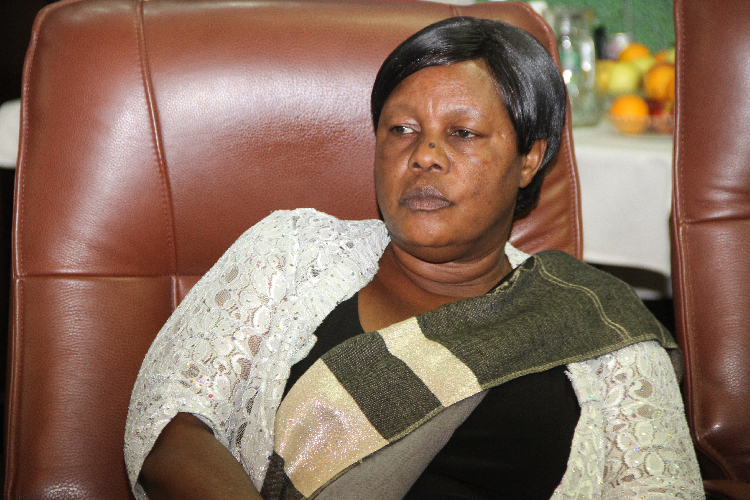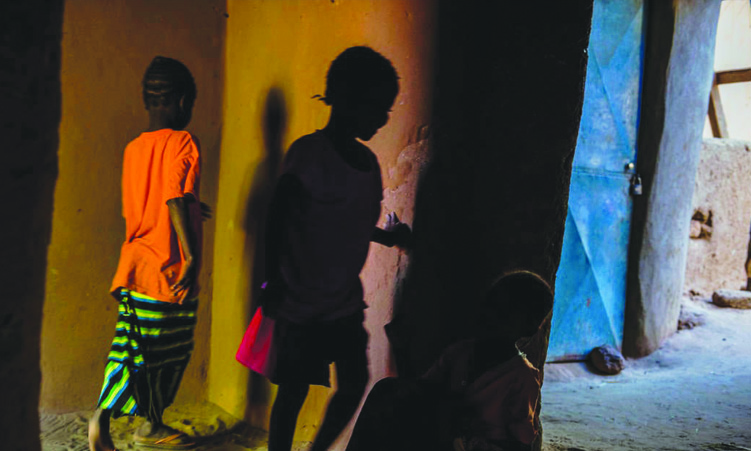Twenty-eight child trafficking cases were investigated and prosecuted in Namibia from January 2021 to December 2023.
This is according to the Namibian Police.
In addition, gender equality, poverty eradication and social welfare minister Doreen Sioka says since April 2023 to date, eight cases of trafficking in persons were investigated, five cases are on the court roll and one case was convicted under the Combating of Trafficking in Persons Act.
Since August 2023 to date, the ministry has accommodated 26 victims of trafficking, which includes 12 children.
Sioka was speaking during the observance of World Day Against Trafficking in Persons at Swakopmund last week.
The day was marked under the theme: ‘Leave No Child Behind in the Fight Against Trafficking in Persons’.
“Efforts made by the government regarding combating trafficking in persons include the establishment of a national high-level committee chaired by the minister of international relations and cooperation,” said Sioka.
The committee reports to the Cabinet on a regular basis and includes the ministers of justice, home affairs, gender equality, and international relations, as well as the prosecutor general and attorney general,” she added.
According to Sioka, Namibia continues to implement the National Plan of Action on Combating Trafficking in Persons (2023 to 2027), and the National Referral Mechanism and Standard Operating Procedures on Trafficking in Persons. This is a guiding tool for the identification, protection, referral and safe return of victims of trafficking.
Sioka said the government also developed a police and prosecutor training manual and pocket manual on trafficking in persons.
This strengthened the enforcement of laws related to child labour and improved the provision of social and psycho-social support to child trafficking victims.
Namibia also provides anti-trafficking training to frontline responders like social workers and law enforcement officers, she said.
Increased funding is further made available for protective services for trafficking victims (from the allocation of funds in the national budget and the operationalisation of the government’s gender-based violence shelters in eight regions).
Meanwhile, speaking during the observance of the occasion in the Tsandi constituency on Friday, Omusati regional commander deputy commissioner Moses Simao said 28 child trafficking cases have been investigated between 2021 to 2024, including children from Namibia and some neighbouring countries.
Last year, the government revealed that 101 cases of trafficking in persons were reported in Namibia since 2010.

Simao said trafficking of persons remains a heinous crime involving the grave violation of human rights, both in Namibia and worldwide.
“Victims, including children, are usually deceived or forced into exploitative situations which in some situations are life threatening. What makes it sometimes difficult to investigate is the cross-border nature,” Simao said.
He urged communities to safeguard the protection of children at all times and to avoid the exploitation of women and children.
World Day Against Trafficking in Persons has been commemorated on 30 July annually since 2013 when a resolution was passed by the United Nations to raise awareness on trafficking and the protection of victims’ rights.
Tsandi constituency councillor Junias Amunkete said as a result of trafficking, affected children are being deprived of an education and face numerous challenges, as well as health risks.
In some instances, children are being trafficked by people they know and trust, he added.
“Children are mostly trafficked for commercial sexual, labour exploitation like domestic servitude in agricultural, factory and mining work. This deprives affected children of a good family, education and a brighter future that every child deserves.”
Amunkete urged parents and caregivers to ensure the safety of children at all times.
According to the 2023 Trafficking in Persons report issued by the United States department of state covering the past five years, human traffickers exploit both domestic and foreign victims in Namibia. In addition, traffickers also exploit victims from Namibia abroad.
“Some victims are initially offered legitimate work by recruiters for adequate wages but then traffickers subject them to forced labour in urban centres and on commercial farms.
“Traffickers subject Namibian children to sex trafficking and forced labour in agriculture, cattle herding and domestic service. Following the influx of more than 7 000 Angolan migrants fleeing severe drought in south-eastern Angola, Namibians increasingly employ Angolan children as domestic workers and cattle herders, increasing their vulnerability to exploitation,” noted the report.
The report further revealed that traffickers bring children from Angola and neighbouring countries and subject them to sex trafficking and forced labour, particularly in agriculture, cattle herding, domestic servitude, street vending in Windhoek and other urban centres, as well as in the fishing industry.
“Zambian children working as cattle herders in Namibia may be subjected to forced labour. Namibians commonly care for children of distant relatives to provide expanded educational opportunities, however, in some instances, traffickers exploit these children in forced labour,” noted the report.
Among Namibia’s ethnic groups, San and Zemba children are particularly vulnerable to forced labour on farms or in homes, noted the report.
“Traffickers exploit individuals from Angola, Kenya, Zambia, Zimbabwe and South Africa in sex trafficking and forced labour. “A non-governmental organisation has noted an increase in exploitation of Namibians seeking economic opportunities abroad and an increase in labour trafficking of adult male victims in Namibia’s fishing and agricultural sectors,” noted the report.
Traffickers increasingly use social media to advertise false jobs and groom potential victims.
Stay informed with The Namibian – your source for credible journalism. Get in-depth reporting and opinions for
only N$85 a month. Invest in journalism, invest in democracy –
Subscribe Now!







